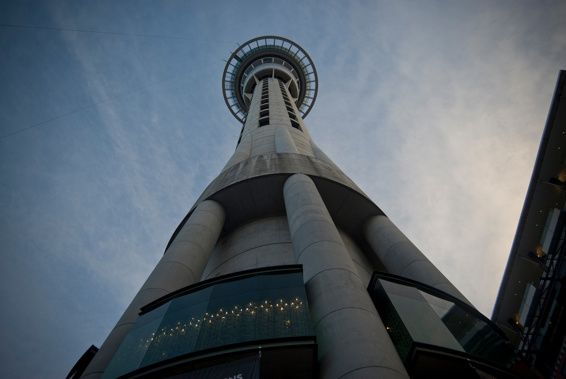
Questions over New Zealand's ability to complete infrastructure projects effectively and strong words from Auckland's mayor are among the results of the Government's official move to scrap Auckland's fuel tax.
Auckland's Regional Fuel Tax will be scrapped at the end of June, a decision the city's mayor says will leave a $1.2 billion gap in transport funding, over the next four years.
It was a move that first appeared to deeply frustrate the city's mayor, Wayne Brown, who told Heather Du Plessis-Allan on Thursday evening that there would be shortfalls that resulted from removing one of Auckland Council's sources of revenue.
He said the money expected to be received from the tax had already been budgeted and allocated towards projects like the next stage of the Eastern Busway and the purchase of trains for the City Rail Link project.
"We've got a bit of an argey-bargey coming up because [Transport Minister, Simeon Brown] wants to build motorways in Auckland, like the east-west motorway, that we don't want," he said.
"This is my city, not theirs."
Brown has been outspoken about the role of central government in Auckland Council's affairs in the past, claiming that local government "has been crushed by various governments for a long time". He argued people's daily lives are more affected by the local council, but the central government has a "father thing".
He was asked by Du-Plessis Allan whether he was happy at least with the fact Auckland Transport - an agency he's long expressed is incapable of controlling its spending - is having the financial squeeze put on its books.
Brown was adamant he was more than happy to put the squeeze on Auckland Transport but stood firm on the belief that it should be Auckland Council playing the role.
"We want to make the decisions," the mayor said.
On Friday morning, the conversation progressed from the council needing to pick and choose which projects it would prioritise due to slimming back its revenue, to how infrastructure projects could be completed despite the tightened funds.
Northern Infrastructure Forum coordinator Barney Irvine told Mike Hosking that the Government would have to find new ways to fund and finance the projects needed.
He claimed the funding issues weren't just Auckland-specific but were a national problem that needed to be addressed.
"There's a whole lot of things we need to do as well and we have some really big problems around value for money with the investments we make," he told Hosking.
Irvine quoted a piece of analysis recently published by the Infrastructure Commission showing New Zealand sat in the bottom 10 per cent of developed countries when it comes to the efficiency of its infrastructure investment.
He said part of the problem came from the consenting process, which he called complex, while another factor is the uncertainty within the country's markets.
"We have a transport programme set by one government and one administration and another one comes in and everything gets flushed out and we start again and go in a very different direction," said Irvine.
"We need a lot more consistency around that so that the market can gear up and be ready to deliver for the long term."
Asked if the Government could go some way to provide a pipeline and slim down the Resource Management Act in order to improve the red-tape issues, Irvine said it would "absolutely" make a difference but other things would also be needed.
He said the tools are available to allow local and central government to borrow off the balance sheet, borrowing more and paying it back over a longer period of time.
"We've got to start using those tools - transport projects often generate a whole lot of increase in property value."The Minister of Infrastructure, Chris Bishop, was approached by ZB Plus about the infrastructure deficits and challenges with funding - specifically around the consenting and delivery of infrastructure.
Bishop acknowledged the challenges and pointed to data from the Infrastructure Commission, indicating New Zealand's consenting alone costs $1.3 billion every year and the time for consent has blown out by 150 per cent in recent years.
He said the coalition Government was focused on its first step to solving the problem through its announcements of creating its fast-track consenting one-stop-shop regime.
"[This] will greatly improve the efficiency of infrastructure delivery and is well supported across all parties," he said.
The Government is also creating a National Infrastructure Agency which will oversee the delivery of complex and significant infrastructure projects, along with a 30-year plan around infrastructure.
"We will also be exploring innovative funding and financing tools to ensure that the infrastructure New Zealanders need can be delivered effectively."
Take your Radio, Podcasts and Music with you









